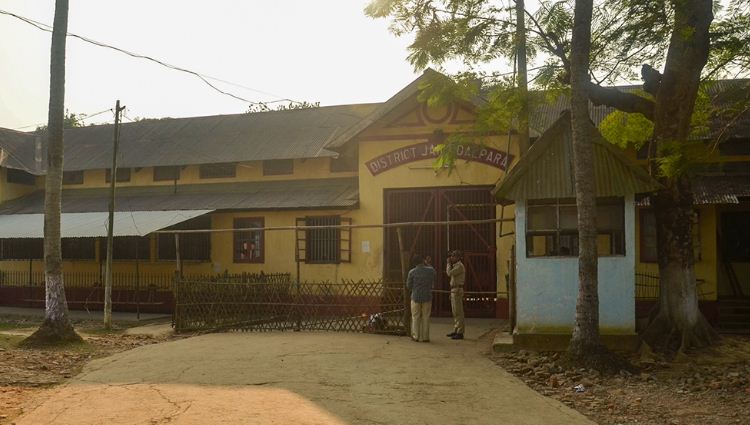International Human Rights Day: “Taking away citizenship is worst human rights abuse,” say Assam’s citizens declared foreigners by govt

For several thousand citizens of north-eastern Indian state of Assam, who were declared foreigners by the government, citizenship battle is at the core of their life – and the one they continue fight every single day.
Mahibul Hoque | TwoCircles.net
ASSAM – Rabia spends most of her time hiding, and effectively leading the life of a criminal. The Assam police frequently come searching to arrest her. The Foreigner’s Tribunal declared her a Bangladeshi despite the existence of documents proving otherwise.
“Fear defines our existence. My wife can’t sleep at home. If you have to keep hiding what kind of rights you are talking about?”, Sattar Ali, a septuagenarian from Darrang district’s Kirakara village, has this question on the occasion of International Human Rights Day. He can’t understand why his wife was declared a foreigner.
Ali’s wife, Rabia was declared as a foreigner by Mangaldai Foreigners’ Tribunal ( FT) in 2018. Ever since the woman has been living in secret. The family has been in disarray as they are trying hard to keep their old mother out of Assam's infamous detention centres.
While Rabia has been evading the arrest attempts, thousands — more than 11,000 at the peak — had to spend time in six detention centres of Assam. In these overcrowded and inhuman detention camps, the inmates’ complained of deteriorating health. Over thirty people have lost their lives as a consequence.
The case of 65-year-old Shukhdev Ree who died as a “declared foreigner” is no different. Out on bail, Ree was supposed to attempt his last try to prove his citizenship in December at Hailakandi FT but he succumbed to a cardiac arrest. “He died struggling to prove his citizenship, his right. It is not just his death, the whole burden of debt, which I took to fight his case, has fallen upon me," his widow Sishubala Ree has a lot to worry about even after his death. She has to pay a debt of Rs. 2 lakh, apart from taking care of the family.
“The tag of being a foreigner did not just take away his rights, it has taken away mine as well. As a tea garden worker, I don’t know how I will be able to live with dignity."
While the D-voter category was first introduced in 1997 to disenfranchise mostly Bengali Speaking or Miya Muslims and Bangali Hindus from the electoral rolls, the cases filed by border police or individuals do not go under scrutiny until the case reaches the foreigners’ tribunals or FTs.
These FTs, in many instances, pass ex parte orders, as in the case of Sukhdev, or cite clerical anomalies to tag someone doubtful. Currently 100 FTs — quasi-judicial bodies with lawyers with 10 years of experience as their heads pass such orders — are functioning in the state.
The state government is in the process of setting up 200 more FTs, adding another 200 after the appointment of members in the first batch. Owing to the increased caseload, the government plans to up the FT tally to 1000 in the state.
Notably, these FTs will be hearing the cases of almost 2 million people who were left out of the National Register of Citizens, updated only in the state of Assam since 1951. Notably, pending the NRC update, the biometrics of over 27 lakh people have been frozen in Assam, due to which these people are also devoid of various government welfare schemes.
The D-voter category has led to the disenfranchisement of 3.15 lakh people from the state’s electoral rolls and more than 1.35 lakh people have been declared as foreigners so far.
FTs violate every tenet of natural justice
Commenting on these three parallel mechanisms of NRC, D-voter and reference cases by border police to contest the citizenship of marginalized groups in Assam, human rights researcher and a visiting fellow at York University, Abdul Kalam Azad says, “The FTs work as an extended arm of the government violating every tenet of natural justice.”
Kalam said the system of citizenship contestation and determination has produced hundreds and thousands of stateless people who have no rights. Many of them are forced into inhuman detention camps. And a million others are on the verge of losing their citizenship waiting for the same fate.
“The human right abuse through citizenship contestation mechanisms is so brutal that it has created a mental health epidemic in marginalized communities like Miya Muslims in Assam. Many people are committing suicides in the fear of detention and other torture,” he adds.
Echoing Kalam, the Kolkata based author and researcher Gorky Chakraborty says, “It is a bizarre category manufactured in the lexicon of Election Commission which is in existence nowhere. It's an executive measure to sanctify that some names in the voter list are doubtful. In other words, the EC doubts its methodology and personnel as well as the citizens.”
Gorky further says, “This is an inhuman process. In a way, it is a process that doubts its citizens that creates the 'other' and seeks to disenfranchise its people”, suggesting that to give rights to citizens, disenfranchisement has to stop.
“Taking away citizenship is one of the worst human rights abuses," Kalam echoes the sentiments of families of victims of Assam’s citizenship contestation.
Mahibul Hoque is a SEED-Fellow with TwoCircles.net. He tweets at @H_Mahibul.
